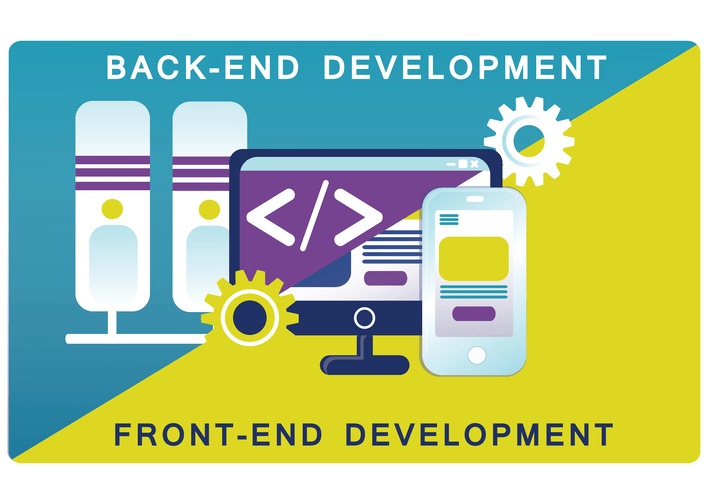If you want to enter this market with your own solution, you have chosen the best time since its prospects are very bright. According to recent analyst data, the global RPA market size is set to reach $1.89 billion by the end of 2021. Such high numbers mean that many companies are investing in developing this technology, and more and more solutions from this area are entering the market. RPA bots are expected to dominate transactional tasks in the finance sector in the short term.
- Gartner helped Canada School of Public Service implement an RPA strategy and roll out multiple RPA processes.
- Let’s explore some of the most common uses for RPA in these areas while considering which advantages make RPA a worthwhile investment.
- This is especially important in the world of finance, where the cost of human errors can be astronomically high.
- All information is documented in a detailed specification that combines all requirements and technology descriptions.
- Tools that deliver full-cycle accounts payable automation provide a more tailored approach to these tasks.
Increase operating leverage by digitizing data input, automating sales order entry and billing processes, increasing productivity, and reducing any billing errors to zero. Highly manual, repetitive tasks and disjointed application environments make for negative experiences. Improve your days payable outstanding (DPO) by accelerating invoice processing and transforming the supplier experience with faster onboarding and more streamlined communication.
How RPA is Transforming The Insurance Industry
For example, they used RPA to automate three back-office processes related to seizure of financial assets for customers based on official legal requests made by executors. People could then focus on more judgement-oriented tasks such as reviewing and validating the data being https://www.globalcloudteam.com/ updated. It is important for enterprises to understand RPA before taking on its implementation. Emerging technologies such as RPA offer many opportunities for enterprises to get ahead and stay competitive, but they also expose enterprises to new sets of risk factors.
Robotic process automation, or RPA, is one of the most exciting technologies in the business world today. RPA bots can scan through contracts and purchase orders and use natural language processing to extract key information such as discounts, rebates and penalty clauses. The bots can then compare this information with information from HPE’s ERP systems on the actuals to identify the gaps and highlight discrepancies. Ensure regulatory compliance, automate manual controls, and tighten governance of financial processes. Estimate the time (weeks or months) you’ll need to map your processes and then determine if your time is better spent on applying RPA or buying a best-practice finance tool.
What Is Robotic Process Automation in Accounting?
RPA finance solutions can automate registration, reduce the number of clients in physical branches, and save time for your clients. Finance automation got a kick-start in the 1990s, when MIT researchers developed the optical character recognition (OCR) technology for reading the handwritten parts of checks with high speed and accuracy. The tools can manipulate data, trigger responses and communicate with other systems in a way that previously required human interaction. Robotic Process Automation (RPA) is estimated to have an automation potential of 44% in Finance and Accounting by reducing manual repetitive tasks.
According to UiPath itself, they helped an unnamed global investment bank automate deal reconciliation and settlement. This institution experienced acute problems with a high level of errors in operations and, as a result, a high level of financial and time spent on operations with the involvement of in-house analysts. UiPath has helped automate the trade process by placing a robot on hand to process all incoming trades. This approach helped to reduce the processing time of transactions from 40 minutes to 3 minutes per trade. As organizations continue to realize the many benefits of RPA in finance, we’ll likely see more financial institutions integrating this technology into their operations. We also expect improvements and increasing accessibility of AI and machine learning services to make RPA even more powerful in the near future.
How To Get The Most Out Of RPA In Finance And Accounting
The financial institution faced a common problem among banks – employees spent too much time on daily reporting, preventing them from performing more important and cognitively-demanding tasks. In partnership with a software development company Fortra, Societe Generale automated the entire reporting process with RPA, saving 6 hours of work per employee per day. Instead of having to do everything manually, finance can invest in robotic process automation in finance and accounting for relatively low costs and high returns. Since most processes within the industry are time-sensitive and repetitive, it’s simple to code a RPA solution to execute the processes on repeat. All the while, your team saves time, the business saves money, and everyone gains from more accurately completed work.

One of the key benefits of RPA is its ability to work with existing systems and applications without requiring major infrastructure changes. Let’s dive into the world of RPA and discover how it can revolutionize your finance and accounting operations. Robots are also less likely to cause security incidents, such as ones that result from employee error (for instance, accidentally sending sensitive data to unintended recipients).
Lowering monthly payroll costs
Tools that deliver full-cycle accounts payable automation provide a more tailored approach to these tasks. For modernizing finance departments, a full consideration of all these solutions will reveal the best approach for your organization. However, many tasks concerning finances have remained manual, either because of a lack of appropriate solutions or out of an organizational uneasiness about placing essential tasks in the hands of robots.

Analysts spend a lot of time searching for information on complex government resources, the FBI, Interpol, and more. Robotic Process Automation in finance industry can deal with these tasks and give analytics more time for other tasks. Robots guarantee the maintenance of the audit trail, which is a major requirement in KYC. At Itransition, we provide experienced teams that specialize in deploying RPA solutions to enable digital transformation in the finance industry.
Key Principles of RPA in Finance and Accounting
By deploying RPA in finance, it automated data scraping, speeding up the decision-making process. Robots can run off something as compact as a laptop, though you may prefer more powerful systems rpa for finance and accounting if you’ll be supporting several robots and expect complex tasks to be performed. RPA’s strengths lie in performing high-volume, repeatable tasks that need little-to-no human intervention.

In addition, RPA bots process the payroll functions according to the organizational rules assisting in lowering payroll costs. One of the most exciting areas where RPA demonstrates its transformative power is within finance and accounting. In these critical domains, RPA enables organizations to optimize their financial processes and revolutionize accounting practices. Robotic process automation or RPA is one of the most disruptive technologies of this era. Organizations with outdated legacy systems seek automation for the digital transformation of their business processes.
UiPath vs Automation Anywhere: which RPA platform deserves the crown?
Explore how RPA accelerates finance and accounting processes, from faster billing to fraud detection, optimizing reporting & cost savings. RPA empowers finance and accounting professionals to make informed decisions and drive continuous process improvement. The future of Robotic Process Automation in finance and accounting holds great potential for transformation. Advancements in technology, such as AI and machine learning, will enable RPA to handle more complex tasks and support strategic decision-making. Unlike traditional automation approaches, RPA does not require complex programming or system integration.